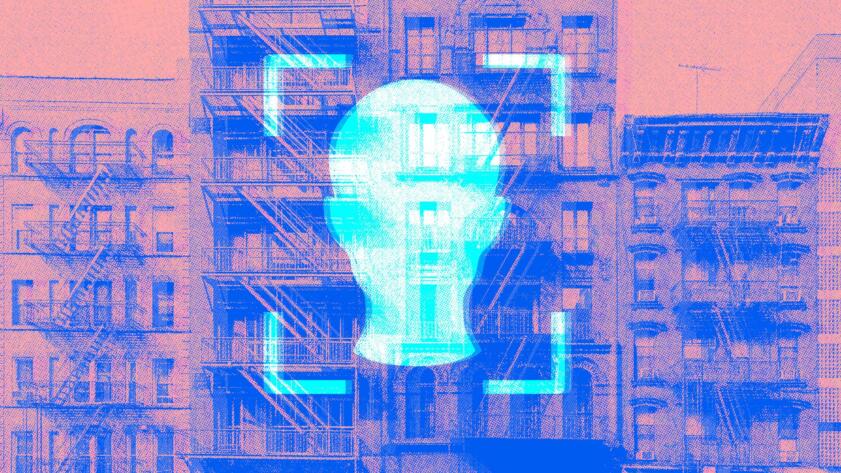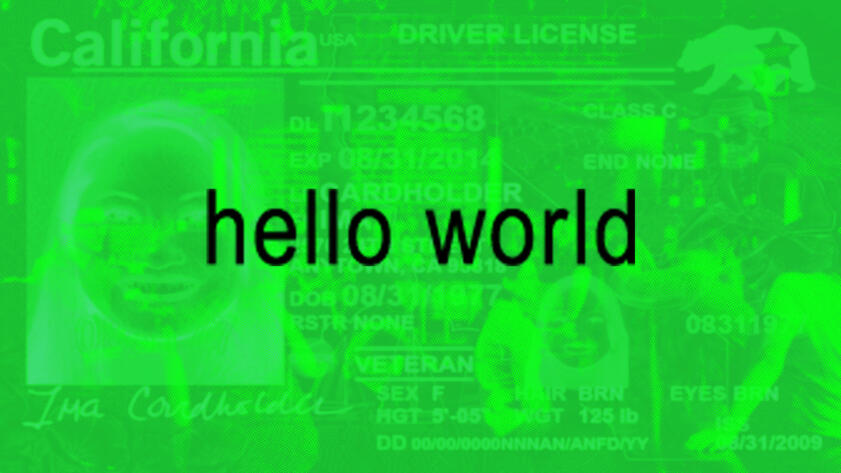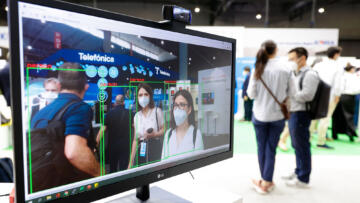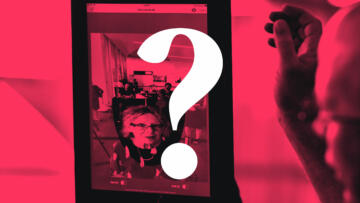Subscribe to Hello World
Hello World is a weekly newsletter—delivered every Saturday morning—that goes deep into our original reporting and the questions we put to big thinkers in the field. Browse the archive here.
Hi all,
Investigative reporter Malena Carollo here again. It’s a million degrees, school’s out, and brat summer is in. If you’re over 21, you may find yourself out on the town in the next few months at bars or nightlife venues. But depending on where you go to order that (me) espresso martini, you might also find yourself in a privately held database of bar-goers.
Bars across the country are using technology to verify that IDs match whoever is presenting them at the door. One of the most popular offerings is “Patronscan” from Canadian company Servall Data Systems. Its website boasts 2,000 venues in 200 cities around the world (including Sacramento), forming “the largest ID scanning network in North America and Australia.”
But the company’s technology raises privacy concerns, particularly in how the data it collects can be used. Beyond just verifying identity, businesses can use Patronscan’s ID-based database to flag people as potential security risks, or even ban them outright for years, based on what venues using Patronscan have recorded about them and their behaviors.
“People are not expecting that kind of collection and retention when they go to an establishment,” said Hayley Tsukayama, associate director of legislative activism at the Electronic Frontier Foundation. “It’s a mismatch for consumer expectations, and for that reason, I think it is concerning and there should be more transparency.”
It is concerning and there should be more transparency.
Hayley Tsukayama, Electronic Frontier Foundation
A spokesperson for Patronscan, Marko Mlikotin, pointed to the benefits to bars of preventing violent incidents, which make patrons “less likely to return” and can lead “to bankruptcy and urban decay” by undermining the “economic activity, jobs, and tax revenue” of “strong and vibrant entertainment districts.”
When customers enter a venue using the technology, they present their IDs and look into a camera hooked up to the Patronscan device. Their IDs are scanned, their images are saved, and the employee running the device has the option to ask “challenge” questions if they would like additional verification, such as the capital of the state that issued the customer’s license, according to its website. Patronscan will alert the employee if it believes an ID it scanned is fake, but does not perform facial recognition, the company said. If all goes well, the customer can enter and go about their day.
But behind the scenes Patronscan does far more than verify identity. It allows businesses to keep track of “VIPs” who might be visiting a club using its software, so staff can greet them. “Big spenders” can be flagged for businesses to reward them with “special treatment,” according to the company’s website; individual businesses need to identify these customers, the company said, since Patronscan doesn’t have a way of measuring spending. Businesses using Patronscan get an analysis of customer demographics to increase their potential for money making by “tailoring (their) marketing efforts to demographics most likely to spend more,” according to its website.
The company also offers a “value score” feature for the current mix of customers. Patronscan did not explain what factors are used to determine this score; it said the feature is a tool for businesses that use its technology to note “high-value customers,” and that the individual businesses using the technology decide the scores.
Tsukayama said this raises a number of questions, including whether Patronscan data can be used to track how often individual patrons go to bars and whether venue employees can access sensitive information such as addresses after they give back the physical ID.

Privacy
Touring a Rental? A Face Scan May Be Required
With the rise of self-guided tours, many companies are requiring facial recognition to see a property
But even thornier issues are raised by one of Patronscan’s signature features: Those using the service can flag a customer as problematic and even add that individual to a ban list. Its website lists six behaviors customers can be flagged for: violence, assault, destruction of property, sexual assault, fraud, and theft. People can either be flagged at a particular venue for up to five years, or flagged across the company’s entire network for up to one year. This “vast” database of flagged customers, according to Patronscan’s website, isn’t subject to the company’s 21-day data deletion policy for other customers in the U.S. Instead, it is retained to feed a predictive system that proactively alerts businesses for “signs of potential trouble,” particularly if patrons have “records” of those behaviors. Patronscan previously had a system flag for “substance abuse,” but this flag was removed in 2019, according to Mlikotin. Its privacy policy notes a California law that limits its flags to “fraud, abuse, and material representation.”
These “records” referenced by the website about troublesome customers are not law enforcement records or convictions in court, Patronscan told The Markup, but are based entirely on data entered into its systems by businesses. Mlikotin said company data shows that safety issues in the venues it serves are caused by a small number of repeat offenders. Mlikotin also indicated that the company sometimes provides its data to law enforcement entities, saying its technology “has helped reduce the threat of physical assaults and solve numerous cases of sexual assaults against women and violent assaults against members of the LGBTQ community.” He declined to say how often Patronscan receives data requests from law enforcement.
Tsukayama worries that this sort of sharing of Patronscan data could be used to map what other people a patron associates with.
Patronscan said it does not sell data to third parties. A California law prevents this without customer consent; it was advocated for by the EFF.
A predictive system proactively alerts businesses for “signs of potential trouble,” particularly if patrons have “records” of bad behavior.
Several media outlets have reported on Patronscan’s work in Sacramento, where venues around the city have used the technology. Some city entertainment permits require “police department-approved ID scanners with specific features,” and Patronscan satisfies those requirements, according to Jennifer Singer, associate media and communications manager for the city. “The city has never mandated or required businesses to use a specific company.”
In a 2018 “daily report” from Patronscan about its performance in Sacramento locations, Patronscan said 1,103 patrons were banned, though it’s not clear what period of time the report covers. The reason for 62% of the bans was listed as “private,” and the average ban duration was listed as about 19 years. Mlikotin said that bans are now for a maximum of five years and that reports like this are not issued anymore, though Patronscan’s website advertises a similar “daily, weekly, and monthly reports on performance and demographics.”
The company said privacy statements are displayed publicly at any location using Patronscan.
Flagged customers have little recourse. The company’s website recommends reaching out to the venue that banned that person to resolve the issue; if that doesn’t work, Patronscan offers an online form those affected can fill out to initiate an investigation, which it says will be responded to within 10 business days. If the company finds a business using its technology “acted inappropriately,” it will end their subscription, according to Mlikotin.
Patronscan was hit last year with a lawsuit alleging that it illegally collected customers’ biometrics in Illinois, which has one of the most robust biometric privacy laws in the country. It denied collecting such information. The case was settled last month for an undisclosed amount.
Have you encountered this technology in your area? Help us understand where it is used and what your experience with it has been by sending me an email at malena@themarkup.org or calling or texting me at 813-591-0688.
Best,
Malena




